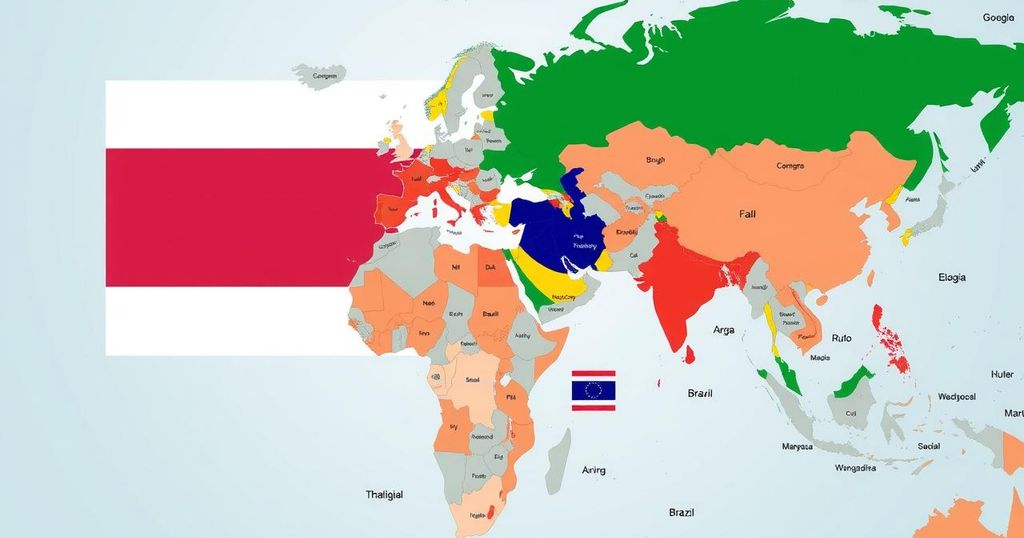The Brazilian government has announced new agricultural export opportunities including bananas and walnuts to the EEU, yerba mate and macadamia nuts to Saudi Arabia, and fishmeal and fish oil to Thailand. These actions are part of a strategy to diversify exports and strengthen trade relationships, leading to 221 new market openings by 2024, supported by efforts from the Ministry of Agriculture and the Ministry of Foreign Affairs.
The Brazilian government has recently announced that several countries have granted authorization for Brazil to export new agricultural products. The Eurasian Economic Union (EEU), which consists of Armenia, Belarus, Kazakhstan, Kyrgyzstan, and Russia, is set to import bananas and walnuts from Brazil. In the current year, Brazil’s agricultural exports to the EEU have exceeded USD 1.3 billion. Furthermore, Brazil has also received permission to export yerba mate and macadamia nuts to Saudi Arabia, a market that saw Brazilian agricultural exports surpassing USD 2.3 billion in 2024 alone. Moreover, the Thai government has approved the export of fishmeal and fish oil, vital products in various industries, from Brazil. From January to November 2024, Brazil exported agricultural goods worth over USD 2.7 billion to Thailand. These market openings are part of Brazil’s broader strategy to diversify its export portfolio and enhance trade relationships. Collectively, Brazilian agribusiness will achieve 221 market openings by 2024, prompting 299 new business opportunities since early 2023. This growth is the result of collaborative efforts between the Ministry of Agriculture and Livestock (MAPA) and the Ministry of Foreign Affairs (MRE).
The recent authorization by various countries for Brazil to export additional agricultural products is indicative of Brazil’s growing influence in international markets. The emphasis on diversifying export opportunities is a strategic move aimed at reducing dependency on traditional markets and fostering new trade relations. By establishing trust in its sanitary and phytosanitary control systems, Brazil positions itself as a reliable global supplier, thus reinforcing its agricultural sector’s competitiveness on the world stage.
In conclusion, Brazil’s new export opportunities to the EEU, Saudi Arabia, and Thailand signify the government’s successful initiatives to broaden its agricultural market reach. These developments are not only expected to enhance the national economy through increased agricultural export revenues but also reflect Brazil’s commitment to maintaining high standards in agricultural production and safety. The collaborative efforts between MAPA and MRE have paved the way for future trade negotiations, establishing a foundation for sustained growth.
Original Source: www.gov.br







